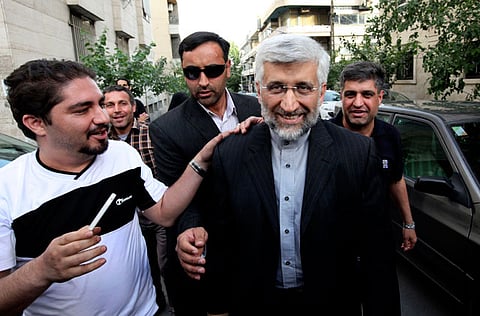Iran election a golden opportunity to end standoff
There are signs Obama’s new administration may be ready to be flexible with Iran

The campaign to elect Mahmoud Ahmadinejad’s successor as Iranian President is well under way. The eight candidates took part in a TV debate on cultural policies last Wednesday, with a further debate scheduled before the vote takes place on June 14.
Internationally, there is despair. Absent from the debate was the former president Hashemi Rafsanjani, excluded from the list of approved candidates by the Guardian Council. That move was taken as a sign that Iran was about to turn its back on nuclear negotiations.
This is too gloomy. It is certainly true that Rafsanjani, who was president from 1989 to 1997, has ripened in old age into a member of the reform camp. However, it will be hard to put a cigarette paper between him and other presidential candidates on the nuclear issue. All of them fully support Iran’s current nuclear programme and insist that it is entitled to carry out uranium enrichment on its own soil. All are fully agreed in rejecting western demands that Iran should abandon its peaceful programme.
Saeed Jalili, Iran’s chief nuclear negotiator, is said to be making strong progress (though in the absence of polling evidence it is hard to be sure). He is sometimes viewed as a hardliner, but that may not be a bad thing. If he is trusted by the Supreme Leader, he may be given extra freedom to negotiate on the nuclear issue. The figure most likely to take up the reformist mantle of the absent Rafsanjani, however, has a record of flexibility in talking to the West.
Hassan Rouhani headed Iran’s nuclear negotiating team from 2003 to 2005. It was during his term of office that Iran made an extraordinary offer that could have solved the nuclear standoff between Iran and the West. At a meeting in the Quai d’Orsay (the French ministry of foreign affairs) on March 23, 2005, Iran unveiled the most comprehensive and important offer it has ever made.
It proposed the continuous presence of inspectors from the International Atomic Energy Agency at Iran’s enrichment facilities, immediate conversion of all low-enriched uranium to fuel rods for power reactors (precluding the possibility of further enrichment) and no processing of spent fuel rods, ruling out the possibility of plutonium production. In return, Iran demanded that the West allow it to carry on with its programme of peaceful nuclear enrichment. This was a reasonable demand, since Iran has an “inalienable right” to develop peaceful nuclear power under article 4.1 of the non-proliferation treaty, which it signed in 1968.
The offer, however, was rejected out of hand and there is no doubt why. Acting on instructions from the US, the European negotiators were determined not to “tolerate even the operation of even one centrifuge in Iran”. Though there are faults on both sides, this refusal to acknowledge Iran’s right to peaceful enrichment remains the most fundamental stumbling block to any resolution of the nuclear argument.
Whoever wins this month’s elections, no progress is possible unless the West acknowledges this point. Happily there are signs that US President Barack Obama’s new administration may be ready to be flexible. In 2009, senator John Kerry (then chairman of the Senate Foreign Relations Committee) told the Financial Times that under the treaty, Iran had “a right to peaceful nuclear power and to enrichment in that purpose”.
So there is every reason to feel hopeful that the Iranian elections can open the way to a full resolution of the Iranian nuclear problem. If so, any deal will look very similar to the one offered by Iranian presidential hopeful Rouhani in 2005 — and flatly rejected on the orders of George W. Bush.
— Guardian News & Media Ltd
Peter Oborne and David Morrison are the authors of A Dangerous Delusion: Why the West is Wrong About Nuclear Iran
Sign up for the Daily Briefing
Get the latest news and updates straight to your inbox



